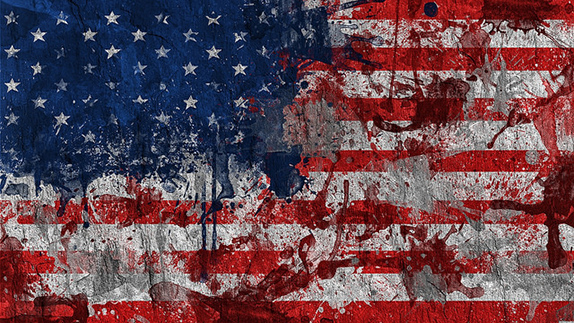
In 1917, the United States entered World War I, because, in the words of President Woodrow Wilson, “The world must be made safe for democracy.” Today, however, the more pressing issue is whether democracy can be made safe for the world.
Every aspect of democracy is under fire, not only by its foes but even by its friends. Where democracy is well established, as in the United States and much of Europe, it seems to be stumbling. Where it is nascent, as in the Middle East, Africa and Asia, it is stillborn.
The essence of democracy has been reduced by its advocates to a series of ritual formalities and frozen institutions—political parties, elections, written constitutions. Yet without the cultural values and social stability to make democratic institutions function, democracy has decayed into the Russia of Vladimir Putin, the Venezuela of the Chavistas, the Nicaragua of the Ortegas and the Egypt of the generals. Elsewhere, failed attempts to install elections and the other trappings of democracy have resulted in bloody nightmares—in the Congo, South Sudan and Iraq, to name only a few. Even those countries that as recently as a year ago seemed to be making progress, such as Thailand, Honduras, Egypt, Myanmar, Turkey, Burma and Afghanistan, are slipping back into the morass of failure. But, you might argue, there is always Tunisia. Yes, in defense of the progress of democracy we do have Tunisia. Talk about damning with faint praise!
The problem with democracy is not just that it has failed to take root in most places where it has been introduced. The real problem is that it has further decimated already tarnished societies. Elections have been the cause of even greater violence and injustice than the status quo that preceded them. Voting has turned into bloodshed and even warfare. The divisions of the democratic process have destroyed economies. Human rights, rather than being promoted by democracy, have been eviscerated by it.
It is a sign of the demoralization of the friends of democracy that The Economist magazine devoted a six-page cover essay in its current issue to asking, “What’s gone wrong with democracy?” The New Republic has tried to explain “Why Democracy is Failing Across the World.” What only a few years ago was almost universally regarded as the tidal wave of history is now more often being relegated to history’s stagnant backwaters.
The viability of any concept is most clearly demonstrated by its foremost practitioners. When the Soviet Union and China seemed to be successful experiments in Marxism-Leninism, communism was a major force in the world. When the Soviet Union collapsed and China reverted to capitalism, communism came to seem a combination of cruel hoax and deranged dictatorship.
Thus the success of the United States and Europe in the half-century after World War II led many to want to imitate their examples. But how many in the world today would want to re-create our political system of stalemate, bitter partisanship and the rule of big money? How many would want to copy Europe’s systems today? With Britain, Italy, Spain, Belgium and perhaps other countries on the verge of splintering into their historical bits? With economies that cannot supply jobs for their workers or growth for their businesses? With countries that are too weak to act alone and too divided to act together?
Compare the failures of Europe and America to the vitality manifested by China and Russia, two countries whose leaders openly sneer at democracy, and it is little wonder that much of the world looks askance when Western politicians and diplomats exhort them to go democratic.
The world runs in cycles, and styles of belief come and go. The disillusionment with democracy is not necessarily any more permanent than were the messianic missions of Wilson and George W. Bush to make over every country in our own image. But to restore the credibility of democracy a few changes will be needed.
First and foremost, the greatest exemplars of democracy must reform themselves so that they can show democracy really works. If Europe, and even more, the United States, cannot solve their own problems, how can they be expected to solve the problems of governance of the whole world?
Second, we need to have a more sophisticated notion of what democracy is all about. Democracy is a form of government that reflects the will of its people. Written constitutions, elections and political parties may hinder true democracy as easily as they can advance it. After all, the founders of American democracy had never heard of political parties and would have been horrified had they known of them; the same could be said of lobbyists and political action committees and the whole economy of corruption and greed that underlies our own political system today.
Third, any political system is only as good as the results it procures for its people. In the United States, government is so tied in knots that it is now unable to do anything of substance on almost any issue, and the chances for improvement in the foreseeable future seem negligible. The same has been true in a more complex way in Europe, where the increasing influence of rightwing extremists, the success of separatist movements and the overweening power of the top-down bureaucracy of the European Union have vitiated the once-potent lure of democratic states.
Democracy, however, remains what Winston Churchill told Parliament it was in 1947: "the worst form of government, except for all those other forms that have been tried from time to time."
Real democracy, as opposed to mere democratic forms, is still the only way a society can simultaneously protect minorities while activating the will of the majority. It is how societies can peacefully transfer power from one set of leaders to another. It is how continuity can be assured while change, even radical change, can be managed nonviolently.
Skepticism and optimism about democracy have long alternated as matters of intellectual fashion. “Is Democracy a Failure?” was the title of a lengthy editorial in The New York Times. It was published March 14, 1861.
Democracy is our past; it could once again be our future. But will it be?
(Image credit: Flag by Andrew Willard)



Responses to “What Happened to Democracy?”